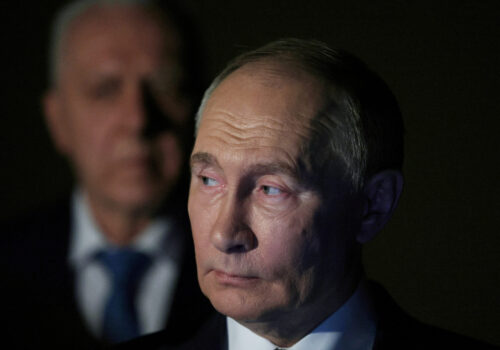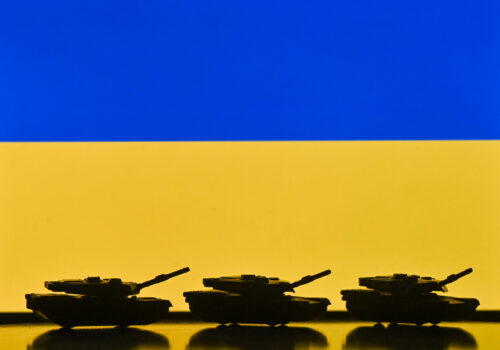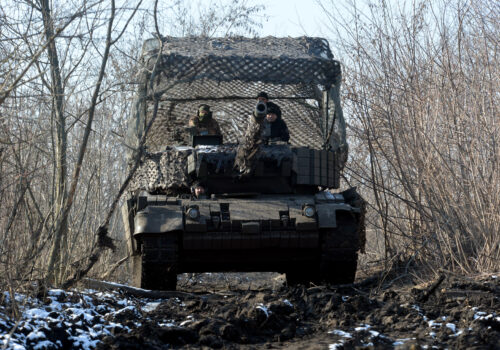

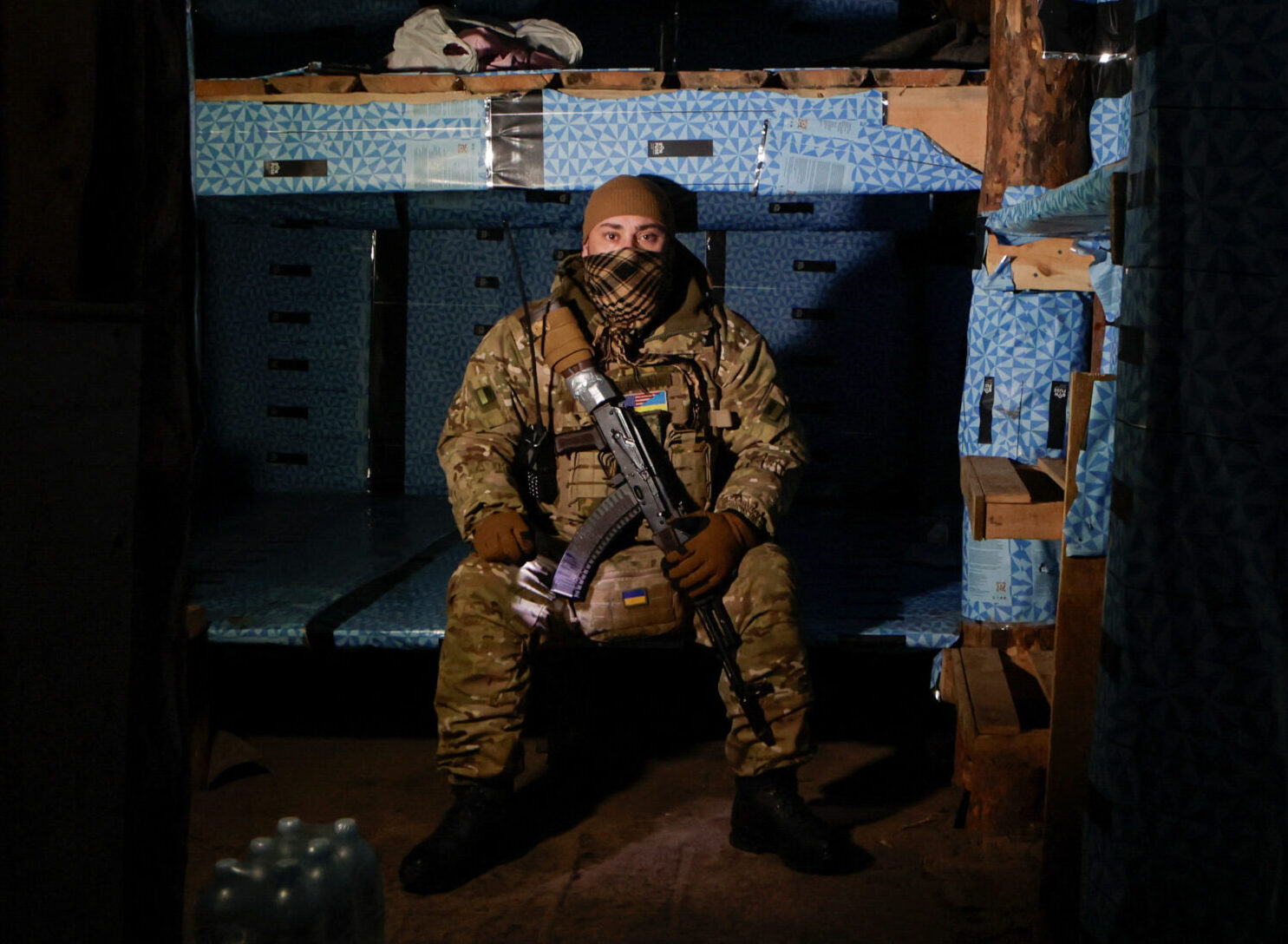
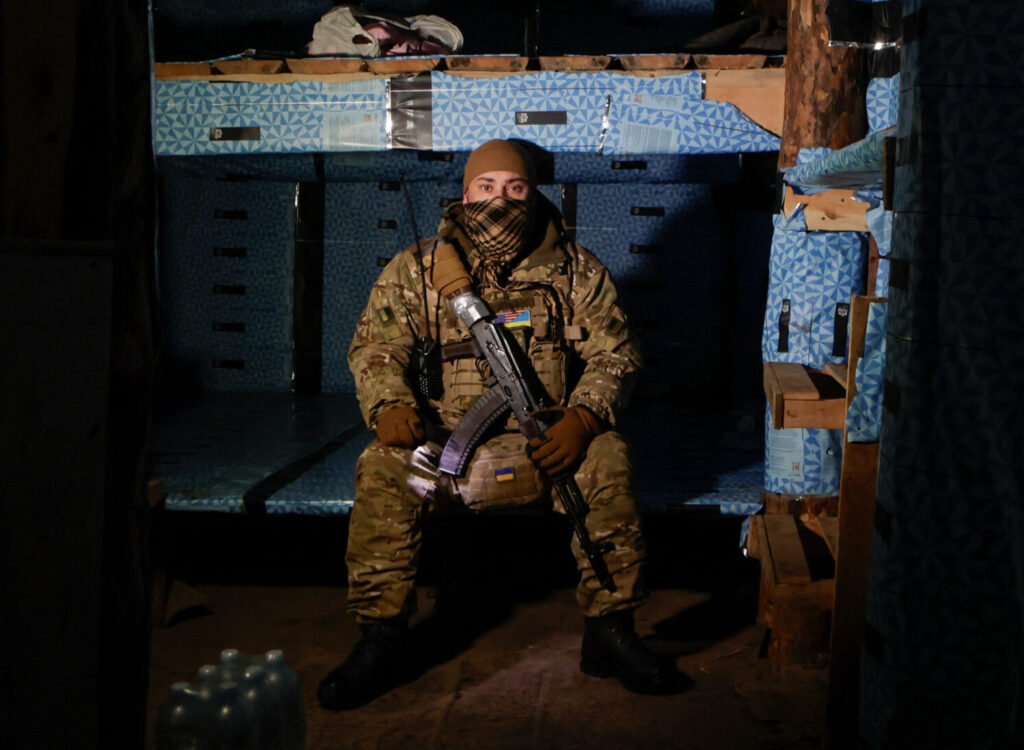
As the third anniversary of Russia’s full-scale invasion draws close, the chorus of voices calling for new elections in Ukraine is growing louder and louder. Curiously, however, these calls are not coming from the Ukrainians themselves, but from the Kremlin and the Trump White House.
Since his inauguration one month ago, US President Donald Trump has begun echoing Russian demands for fresh Ukrainian elections. This week, he sparked outrage by branding Ukrainian President Volodymyr Zelenskyy a “dictator without elections.” These attacks have proved popular in Moscow but have fallen flat in Kyiv, with most Ukrainians rejecting the US leader’s claims and rallying behind Zelenskyy.
The debate over Ukrainian elections reflects the challenging wartime realities in the partially occupied country. Ukraine was scheduled to hold presidential and parliamentary votes in 2024 but was forced to postpone both ballots as the Ukrainian Constitution does not allow national elections during martial law, which was introduced in 2022 and remains in place. Zelenskyy has vowed to hold elections as soon as the security situation allows, but argues that it would be impossible to stage free and fair votes in the current circumstances.
The majority of Ukrainians appear to agree. Two of Zelenskyy’s main political rivals, Petro Poroshenko and Yulia Tymoshenko, have publicly rejected the idea of wartime elections as impractical and illegitimate. Ukraine’s vibrant civil society has also voiced its opposition to the return of elections before a peace agreement has been signed. Meanwhile, a new opinion poll conducted in February 2025 found that 63 percent of Ukrainians are against holding any national votes until the war with Russia is over.
This lack of appetite for wartime elections is not the product of apathy or oppression. On the contrary, Ukrainians are fiercely proud of their country’s democratic credentials, which were hard-won during two separate pro-democracy revolutions in 2004 and 2014. On both occasions, millions of Ukrainians took part in massive protest movements opposing Russian-backed attempts to subvert the country’s emerging democracy and place Ukraine on a trajectory toward Kremlin-style authoritarianism. This grassroots embrace of democratic values has become central to modern Ukraine’s sense of national identity.
Stay updated
For more than two decades, Ukraine’s burgeoning democratic culture has been one of the key triggers behind Moscow’s escalating campaign of aggression against the country. Russian President Vladimir Putin’s obsession with Ukraine can be traced back to the 2004 Orange Revolution, which was in part provoked by his botched intervention in the Ukrainian presidential election. This was to prove a watershed moment in relations between the two post-Soviet countries. Over the subsequent two decades, Ukraine has pursued a European democratic future, while Putin’s Russia has turned back toward the imperial past.
Putin’s fear of Ukrainian democracy is easy enough to understand. As a young KGB officer in East Germany, his formative political experience was the fall of the Berlin Wall and the rapid collapse of the Soviet Empire as a wave of democratic uprisings swept across Eastern Europe. Ever since the Orange Revolution, Putin has been haunted by the idea that an increasingly democratic Ukraine could serve as a catalyst for the next stage in Russia’s imperial retreat and spark the breakup of the Russian Federation itself.
Mounting concern in Moscow over the possible impact of Ukraine’s democratic progress was a major contributing factor behind Putin’s fateful decision to invade Ukraine in 2014. When the occupation of Crimea and eastern Ukraine’s Donbas region failed to prevent the consolidation of Ukrainian democracy or derail the country’s Euro-Atlantic integration, Putin felt compelled to launch the full-scale invasion of Ukraine in February 2022.
Eurasia Center events
Ukrainians would be the first to admit that their country’s democracy is still very much a work in progress that suffers from a wide range of imperfections including deeply entrenched institutional corruption and excessive oligarch influence. Temporary wartime security measures targeting Kremlin-linked political parties and institutions such as the Russian Orthodox Church have also raised concerns. At the same time, Ukrainians are acutely aware that their country’s recent history of internationally recognized elections and strengthening democratic culture set them apart from their Russian neighbors.
The fight for democracy has in many ways defined Ukraine’s post-Soviet journey, but the vast majority of Ukrainians do not support the idea of holding elections in the current wartime conditions. This skepticism is understandable. More than ten million Ukrainians, representing around a quarter of the population, have been internally displaced by Russia’s invasion or forced to flee abroad as refugees. Millions more are currently living under Russian occupation. Without their participation, any vote would lack legitimacy. Likewise, around one million Ukrainian men and women are now serving in the armed forces. Attempting to provide safe voting conditions for them would be a logistical and security nightmare.
It would be similarly impossible to organize a credible election campaign. With the entire country subject to virtually daily Russian bombardment, large-scale campaign events and election rallies would be out of the question. It would be even more reckless to open thousands of polling stations on election day and invite attacks from Russian drones and missiles. Over the past three years, the Kremlin has repeatedly bombed Ukrainian civilians at train stations, funerals, and other public gatherings. There is little reason to believe election day crowds would not also be targeted. Even if a ceasefire was introduced well before the vote, the threat of renewed Russian air strikes would loom large over the entire campaign and deter public participation.
In addition to these practical impediments, attempting to stage an election campaign prior to the signing of a peace treaty would risk sowing division within Ukrainian society at a pivotal moment in the country’s history. Many believe this is the true reason for the Kremlin’s sudden and otherwise inexplicable enthusiasm for Ukrainian democracy. After all, Russia is the world leader in election interference. While Putin’s army has been unable to defeat Ukraine on the battlefield, he may feel that he can still achieve his goal of dividing and subjugating the country via the ballot box. At the very least, if current Ukrainian President Volodymyr Zelenskyy failed to win reelection, this would remove a very high-profile obstacle to a peace agreement in Russia’s favor.
Democracy is at the very heart of Ukraine’s current fight for national survival and is destined to remain one of the core values in postwar Ukraine. For now, though, most Ukrainians acknowledge that any attempt to stage elections would be impractical and irresponsible in the extreme. For this reason, there is currently no clamor whatsoever for elections within Ukrainian society. The current generation of Ukrainians have fought long and hard for their democratic rights, but they also recognize that the country must be at peace before credible elections can take place. It would be absurd to ignore their wishes and impose premature elections on Ukraine as part of a Kremlin-friendly peace process.
Peter Dickinson is editor of the Atlantic Council’s UkraineAlert service.
The views expressed in UkraineAlert are solely those of the authors and do not necessarily reflect the views of the Atlantic Council, its staff, or its supporters.

The Eurasia Center’s mission is to enhance transatlantic cooperation in promoting stability, democratic values and prosperity in Eurasia, from Eastern Europe and Turkey in the West to the Caucasus, Russia and Central Asia in the East.
Follow us on social media
and support our work
Civil Society Conflict Democratic Transitions Elections Freedom and Prosperity Human Rights Russia Ukraine United States and Canada
Image: A Ukrainian serviceman of the 211th Pontoon Bridge Brigade of the Armed Forces of Ukraine is seen in a newly built dugout, part of a system of new fortification, amid Russia's attack on Ukraine, in Kharkiv region, Ukraine February 14, 2025. (REUTERS/Sofiia Gatilova)

